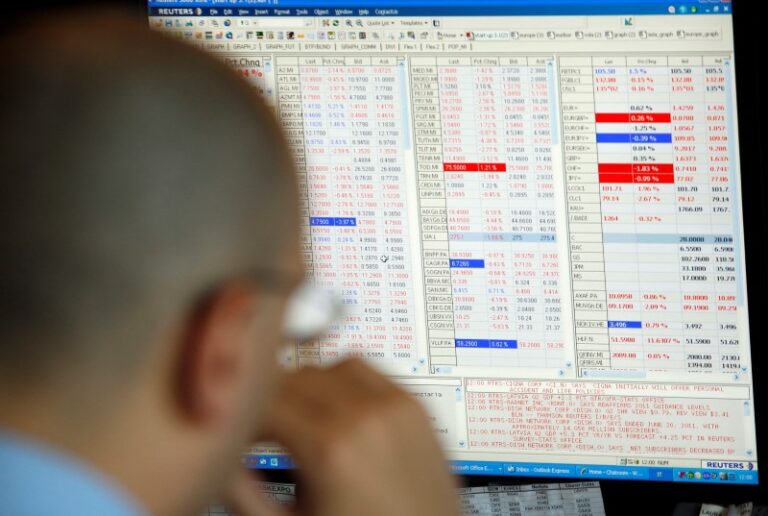Yoon Ah Mun and Ankur Banerjee
SINGAPORE (Reuters) – Asian semiconductor shares fell sharply on Thursday while European chip stocks were off to a more subdued start after reports that the United States is considering tightening export controls on advanced semiconductor technology to China.
The hardest hit in Asia was shares in Taiwan Semiconductor Manufacturing Co. (TSMC), the world’s largest contract chipmaker, whose market capitalization fell by about NT$1.7 trillion ($52.13 billion) in two days.
The bad news came after Republican presidential candidate Donald Trump said Taiwan should pay for its defense, sending TSMC shares down 2.4%.
TSMC said in its earnings report on Thursday that it expects third-quarter revenue to increase as much as 34% from the same period last year after reporting quarterly net profit that beat market expectations.
Other Asian technology giants suffered losses as well, with South Korean memory chip maker SK Hynix falling 3.6 percent and Japan’s Tokyo Electron dropping 8.75 percent.
The Global X Asia Semiconductor exchange-traded fund (ETF), whose key holdings include SK Hynix, Tokyo Electron, TSMC and Samsung Electronics (KS:), fell 1.74%, reducing its gains this year to 16.7%.
In Europe, the index rose 0.2%, but the technology sub-index fell to its lowest in six weeks and was last down 0.37%.
A Bloomberg News report published during Asian trading hours on Wednesday said President Joe Biden’s administration is considering a measure known as the Foreign Direct Product Rule that would allow the U.S. government to block the sale of products made with U.S. technology.
That could mean restrictions on companies such as Tokyo Electron and the Netherlands’ ASML (AS:).
ASML shares rose 0.3% on Thursday, partially reversing a more than 10% drop the previous day, despite the company reporting better-than-expected second-quarter profit on the same day as it showed increased artificial intelligence-related orders.
Washington has been protective of the U.S. chip-making industry, which it sees as strategically important in the race against China, raising investor concerns.
Kang Jin-hyuk, an analyst at Shinhan Securities in Seoul, said these concerns overshadowed ASML’s recent strong earnings report, noting that its large sales to China make it a target for proposed U.S. regulations.
“Macro and geopolitical factors appear to have played a bigger role than fundamentals,” Kang said.
China accounted for about 49% of ASML’s second-quarter lithography system sales and about 20% of its order backlog.
In its first-quarter earnings report, TSMC said 69% of its revenue came from North American customers and 9% from China. Similarly, SK Hynix’s March corporate report said 31% of its sales came from China last year.
The Biden administration has moved aggressively to restrict China’s access to cutting-edge chip technology, including sweeping regulations issued in October to restrict exports of artificial intelligence (AI) processors designed by companies such as Nvidia (NASDAQ:).
Recent tensions between the U.S. and China appear to be accelerating early signs that investors are shifting money out of big tech stocks and into smaller value companies on the belief that lower U.S. interest rates will benefit smaller companies.
The global AI boom has seen tech stocks soar to record highs this year, with the Nasdaq up 20% so far this year and BTC soaring 17%.
“Positioning has become quite extreme in the semiconductor and AI sectors and the comments about import restrictions have triggered risk aversion,” said John Wither, who manages an Asia special situations hedge fund at Pictet Asset Management.
(1 dollar = 32.6080 Taiwanese dollars)


